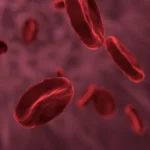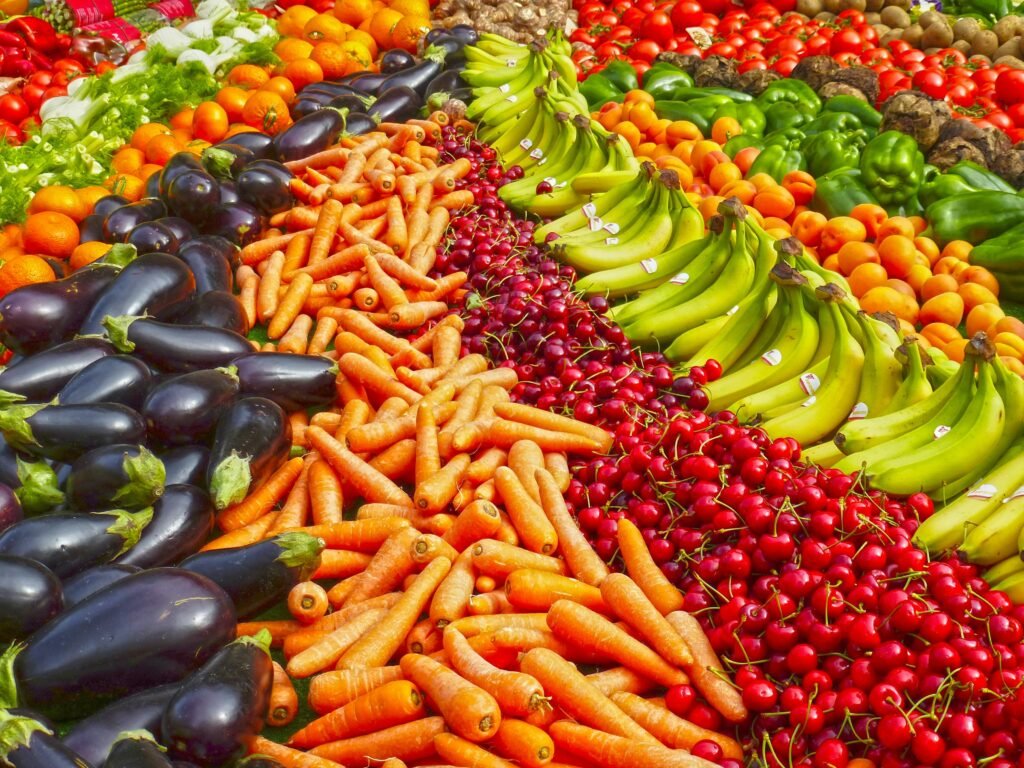Stomach flu can be tough on your gut. After the virus passes, you might feel weak and wonder how to restore gut health after stomach flu. The good news is that you can take steps to help your gut recover. To restore gut health after stomach flu, start by eating small, frequent meals of easy-to-digest foods like bananas, rice, and toast.
Getting enough fluids is key. Water, clear broths, and electrolyte drinks can help prevent dehydration and support your recovery. As you start to feel better, slowly add in other foods. Probiotic-rich items like yogurt may help rebalance your gut bacteria.
Rest is also important for healing. Your body needs time and energy to fight off the virus and repair your gut lining. Be patient with yourself as you recover. If symptoms persist or worsen, check with your doctor.
Key Takeaways
- Eat small, frequent meals of easy-to-digest foods
- Stay hydrated with water, clear broths, and electrolyte drinks
- Rest and give your body time to heal
Understanding Stomach Flu
Stomach flu, also known as viral gastroenteritis, is a common illness that affects the digestive system. It can cause unpleasant symptoms and discomfort, but usually clears up on its own within a few days. Let’s look at how to recognize stomach flu and tell it apart from food poisoning.
Symptoms and Diagnosis
The main signs of stomach flu are nausea, vomiting, and diarrhea. You might also feel stomach cramps and have a low fever. These symptoms often start suddenly and can last for 1-3 days.
Dehydration is a big concern with stomach flu. Watch out for:
- Extreme thirst
- Dry mouth
- Less frequent urination
- Dark urine
- Fatigue
- Dizziness
To diagnose stomach flu, your doctor will ask about your symptoms and do a physical exam. They may also test a stool sample to find out which virus is causing the illness.
Most cases of stomach flu don’t need special tests. But if your symptoms are severe or last a long time, your doctor might do more tests to rule out other problems.
Stomach Flu vs Food Poisoning
Stomach flu and food poisoning can seem very similar, but they have some key differences.
Stomach flu is caused by viruses, while food poisoning comes from bacteria, parasites, or toxins in contaminated food. Here’s how to tell them apart:
Timing: Stomach flu symptoms usually appear 24-48 hours after exposure. Food poisoning can start within a few hours of eating bad food.
Duration: Stomach flu typically lasts 1-3 days. Food poisoning often clears up faster, sometimes within 24 hours.
Spread: Stomach flu is very contagious and can spread easily from person to person. Food poisoning usually only affects those who ate the contaminated food.
Other symptoms: Food poisoning might cause more severe abdominal pain and bloody diarrhea compared to stomach flu.
Both conditions can cause dehydration, so it’s important to stay hydrated no matter which one you have. If you’re unsure or your symptoms are severe, it’s best to check with your doctor.
Immediate Recovery Steps
When dealing with stomach flu, quick action can help you feel better faster. These steps focus on replacing lost fluids and easing discomfort.
Rehydration Strategies
Stomach flu often leads to dehydration from vomiting and diarrhea. To combat this, start with small sips of water or clear fluids. Avoid sugary drinks, which can make diarrhea worse.
Oral rehydration solutions are very helpful. You can buy these at drugstores or make your own. Mix 1 teaspoon of salt, 8 teaspoons of sugar, and 1 liter of clean water.
Sip these fluids slowly throughout the day. Aim for at least 1 cup every hour while awake. If you can’t keep liquids down, try sucking on ice chips.
Eat bland foods when you feel ready. Good choices include bananas, rice, and toast. These foods are easy to digest and help firm up stools.
The Role of IV Fluids
In some cases, oral rehydration isn’t enough. You might need IV fluids if you have severe dehydration or can’t keep anything down.
Signs of severe dehydration include:
- Dark urine or not urinating
- Dry mouth and skin
- Feeling very tired or dizzy
- Rapid heartbeat
IV fluids work quickly to replace lost fluids and electrolytes. They can also help ease nausea and stomach pain.
Your doctor can give you IV fluids in the office or hospital. The process is usually quick, taking about an hour or two. You’ll likely feel better soon after.
Dietary Considerations for Gut Restoration
Eating the right foods can help your gut heal after stomach flu. Some foods are gentle on your stomach, while others may cause discomfort. Let’s look at what to eat and what to avoid.
Gentle Foods to Include
Start with easy-to-digest foods as you recover. Try:
- Clear broths and soups
- Plain white rice
- Bananas
- Toast (without butter)
- Boiled potatoes
- Cooked carrots
These foods are known to improve immunity and help restore your gut health. Add them slowly to your diet.
Probiotics can also help. Yogurt with live cultures or kefir can support your digestive system. These foods add good bacteria to your gut.
Drink plenty of water too. It helps prevent dehydration, which is common after stomach flu.
Foods to Avoid During Recovery
Some foods can upset your stomach as it heals. Stay away from:
- Dairy products (except yogurt)
- Spicy foods
- Fatty or greasy foods
- Caffeine
- Alcohol
- Raw vegetables
- High-fiber foods
These items can be hard to digest or irritate your stomach lining. Rigid dietary restrictions are not always needed, but it’s best to be careful at first.
Avoid sugary drinks too. They can make diarrhea worse. Instead, focus on clear fluids like water or weak tea.
As you feel better, slowly add normal foods back into your diet. Listen to your body and stop if something doesn’t feel right.
Long-Term Gut Health Strategies
Restoring gut health after a stomach flu involves ongoing care and attention. Two key areas to focus on are probiotics and diet. These strategies can help you maintain a healthy digestive system over time.
Probiotics and Gut Flora
Probiotics play a big role in gut health. They are good bacteria that live in your digestive system. After a stomach flu, taking probiotics can help restore your gut health. You can find probiotics in foods like yogurt, kefir, and sauerkraut. You can also take them as supplements.
Different types of probiotics have different benefits. Some help with digestion, while others boost your immune system. It’s a good idea to try a few kinds to see what works best for you.
To get the most from probiotics, take them regularly. This helps keep your gut flora balanced. A balanced gut flora can help prevent future stomach issues.
Importance of a Balanced Diet
What you eat affects your gut health. A balanced diet gives your body the nutrients it needs to heal and stay healthy. After a stomach flu, focus on easy-to-digest foods at first. Then slowly add in a variety of foods.
Fiber is important for gut health. It feeds the good bacteria in your gut. Good sources of fiber include:
- Fruits
- Vegetables
- Whole grains
- Beans
Avoid processed foods and too much sugar. These can upset your gut balance. Instead, eat plenty of fresh, whole foods.
Drinking enough water is also key. It helps your digestive system work well. Aim for 8 glasses a day.
Monitoring Progress and When to Seek Medical Help
As you recover from stomach flu, it’s important to track your progress and know when to get medical help. Keep an eye on your symptoms and watch for any signs that your condition isn’t improving.
Signs of Complications
Pay attention to these warning signs that may need medical attention:
- Severe abdominal pain that doesn’t go away
- Bloody stools or vomit
- High fever (over 102°F or 39°C) that lasts more than 2 days
- Inability to keep liquids down for 24 hours
- No urination for 12 hours or more
These could point to serious issues like appendicitis or severe dehydration. If you experience any of these, call your doctor right away.
Ongoing Support and Medical Advice
Your doctor can help guide your recovery:
- Schedule a follow-up appointment to check your progress
- Ask about probiotics to support your gut health
- Discuss any lingering symptoms or concerns
Keep a symptom diary to share with your doctor. Note what you eat and drink, how often you use the bathroom, and any discomfort you feel. This info helps your doctor understand your recovery better.
If your symptoms don’t improve after a week, or if they get worse, don’t hesitate to reach out to your healthcare provider. They can assess if you need further tests or treatments to help you feel better.
Frequently Asked Questions
Recovering from stomach flu can be tough on your gut. Let’s look at some common questions about restoring gut health after an illness.
Probiotic strains like Lactobacillus rhamnosus GG and Saccharomyces boulardii can help your gut recover. These support digestive health after illness.
Take probiotics as supplements or eat probiotic-rich foods. Yogurt, kefir, and fermented vegetables are good options.
Eat a diverse diet with plenty of fiber. This feeds your good gut bacteria. Include prebiotic foods like bananas, onions, and garlic.
Avoid sugary and processed foods. These can harm beneficial bacteria. Stay hydrated with water and herbal teas to support your gut lining.
Bone broth soothes your gut lining. Cooked vegetables are gentle on your stomach. Fermented foods like sauerkraut add good bacteria.
Probiotic-rich foods help too. Try low-fat yogurt or kefir if you can tolerate dairy.
Eat small, frequent meals instead of large ones. This eases digestion. Avoid spicy, fatty, or hard-to-digest foods for a while.
Try ginger tea or peppermint tea. These can soothe your stomach. Get plenty of rest to help your body heal.
Recovery time varies, but most people feel better in a few days to a week. Your gut might need 2-4 weeks to fully heal.
Be patient with your body. Eat gentle foods and stay hydrated. If symptoms persist, check with your doctor.
Vomiting can disrupt your gut bacteria. It changes the pH in your stomach and removes some good bacteria.
To restore balance, eat probiotic foods. Stay hydrated. Gradually return to a normal, healthy diet rich in fruits and vegetables.





